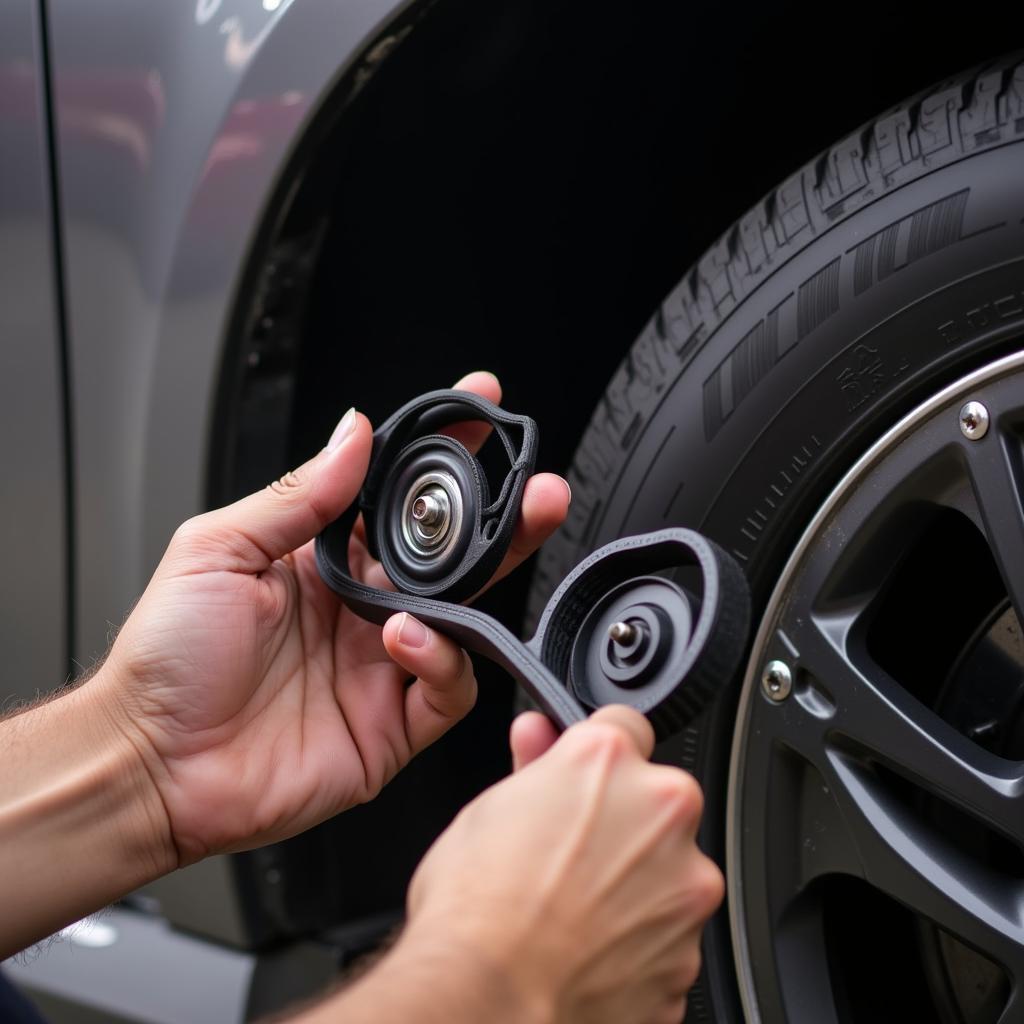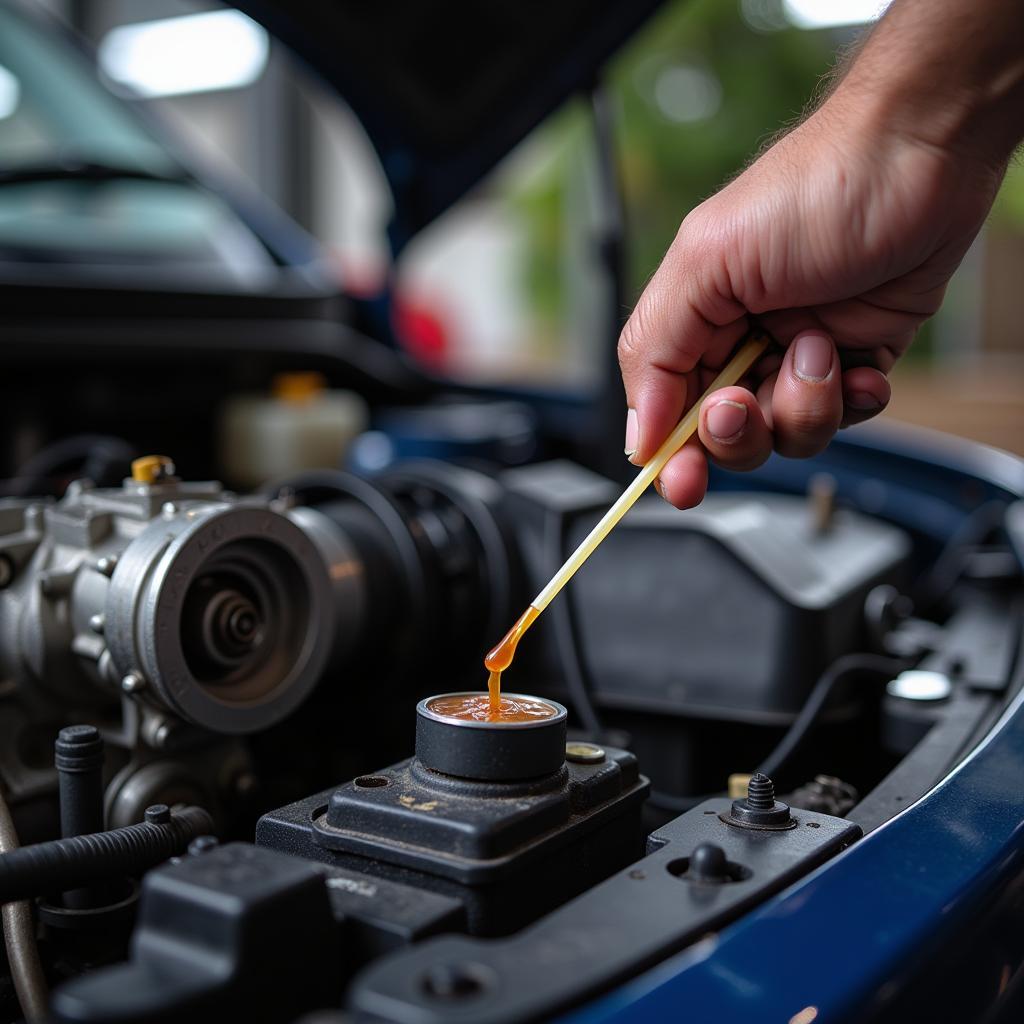What Service To Cars At 75,000 Miles: Your Ultimate Guide
Reaching the 75,000-mile mark on your car’s odometer is a significant milestone. It signifies that your vehicle has served you well, but it also signals the need for crucial car maintenance. At this stage, several components require attention to ensure your car continues running smoothly and safely for many miles to come. This comprehensive guide will delve into what service your car needs at 75,000 miles, equipping you with the knowledge to make informed decisions about your vehicle’s upkeep.
Essential Car Maintenance at 75,000 Miles
While every car model has a unique maintenance schedule outlined in the owner’s manual, certain services are universally recommended at the 75,000-mile mark. These include:
1. Change Engine Oil and Filter
Regular oil changes are the cornerstone of car maintenance. At 75,000 miles, your engine needs fresh oil and a new filter to remove contaminants and ensure optimal performance. Consult your owner’s manual for the recommended oil type and consider switching to high-mileage oil formulated for aging engines.
2. Replace Spark Plugs
Spark plugs ignite the air-fuel mixture in your engine’s cylinders. Worn-out spark plugs can lead to misfires, reduced fuel efficiency, and difficulty starting. Most manufacturers recommend replacing spark plugs between 60,000 and 100,000 miles.
3. Inspect and Replace Belts and Hoses
Over time, the belts and hoses in your engine bay can become brittle, cracked, or loose. Inspect them for signs of wear and tear and replace any worn components.
 Inspecting belts for wear and tear at 75k miles service
Inspecting belts for wear and tear at 75k miles service
4. Check and Flush Coolant
Coolant prevents your engine from overheating. Over time, it can degrade and lose its effectiveness. Have your coolant flushed and replaced according to your car manufacturer’s recommendations.
5. Inspect Brakes
Your braking system is critical for safety. At 75,000 miles, have your mechanic thoroughly inspect your brake pads, rotors, calipers, and brake fluid. Replace worn components to ensure optimal braking performance.
Additional Services to Consider
Besides these essential services, consider the following based on your car’s age, driving conditions, and maintenance history:
- Transmission Fluid Flush: If you own an automatic transmission vehicle, consider having the transmission fluid flushed and replaced.
- Differential Fluid Change: For rear-wheel drive and all-wheel drive vehicles, changing the differential fluid can extend the lifespan of these components.
- Fuel System Cleaning: A fuel system cleaning can remove deposits and improve fuel efficiency.
- Tire Rotation and Balance: Regular tire rotations promote even wear and extend tire life. Balancing ensures a smooth and comfortable ride.
 Checking car fluids during 75,000-mile service
Checking car fluids during 75,000-mile service
Frequently Asked Questions about 75,000-Mile Service
Here are some common questions car owners have about the 75,000-mile service:
Q: How much does the 75,000-mile service typically cost?
A: The cost varies depending on your car make and model and the specific services performed. It’s best to get a quote from a trusted mechanic.
Q: Can I perform some of the 75,000-mile service myself?
A: While some maintenance tasks, like checking fluids, can be done at home, it’s recommended to have a professional mechanic handle more complex procedures.
Q: How often should I service my car after the 75,000-mile mark?
A: Refer to your owner’s manual for recommended service intervals. Generally, following a regular maintenance schedule is crucial for the longevity of your vehicle.
Conclusion
Servicing your car at 75,000 miles is an investment in its longevity, performance, and your safety. By addressing the essential maintenance tasks and considering additional services based on your car’s needs, you can ensure many more miles of enjoyable and worry-free driving. Remember to consult your owner’s manual for specific recommendations and always seek the expertise of a qualified mechanic.

